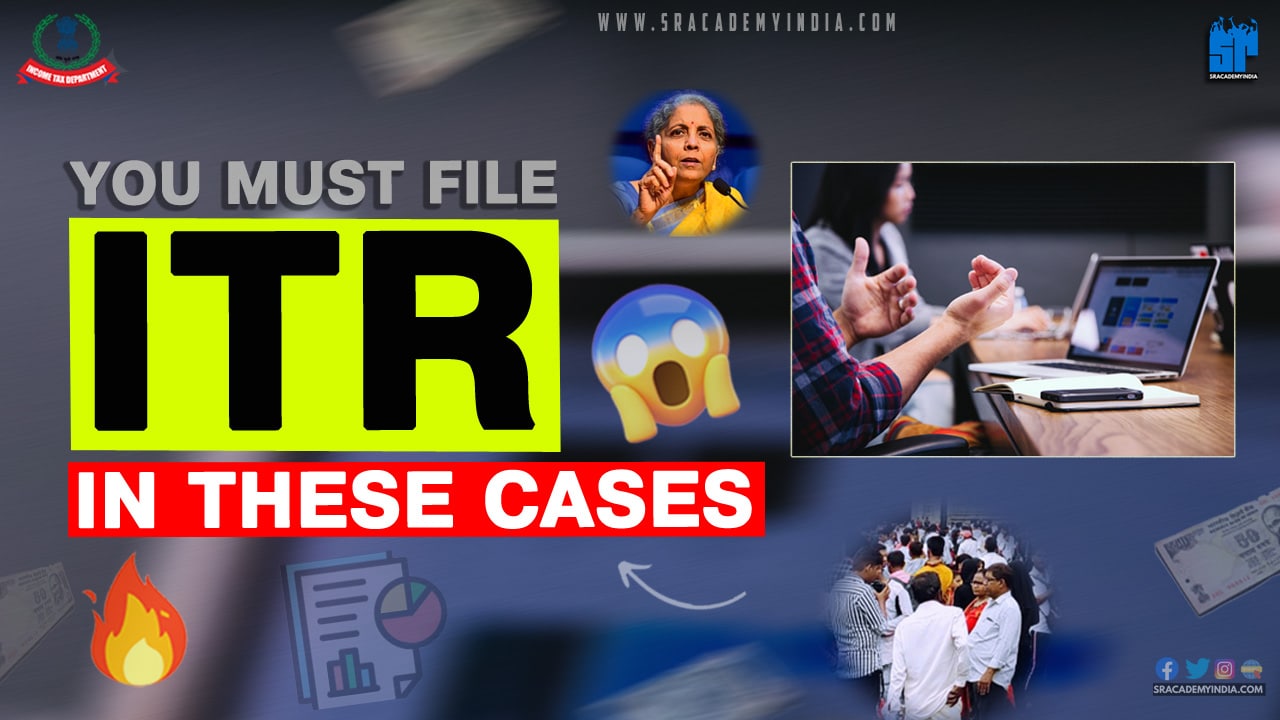ITR filling is mandatory
Introduction
Income Tax Return (ITR) is a document filed by taxpayers to the income tax department by disclosing their incomes earned, tax saving investments made by them and tax liability for the relevant financial year.
ITR filing is mandatory only for persons who satisfy the conditions mentioned by the Income Tax department under sec 139(1). If any person satisfies those conditions in any financial year, ITR filing is mandatory. Otherwise, there is no compulsion to file an ITR. However, they can file it voluntarily.
Is ITR Filing mandatory for everyone?
Income Tax Return (ITR) filing is not compulsory for all individuals. As per the Income Tax Act, an individual should fall under either of the criteria mentioned below to file an ITR mandatorily.
- Income criteria
- Expenditure criteria
- Additional criteria
Under each criterion, there are some additional points to cross-check. If you fall under any of these points, you need to file an ITR mandatorily.
Here we are not discussing in detail about these criteria, pls refer to the full article here: Is it mandatory to file ITR?
In this article, we will be covering only the Expenditure criteria
ITR Filing is Mandatory (when NO income)
In the cases below, you must file an ITR even though you don’t have any income in the relevant financial year. The following are conditions & either of the conditions needs to be satisfied for mandatory filing:
- Deposited an amount (or aggregate of amount) more than Rs. 1 crore in one
or more current accounts maintained with a bank or a cooperative bank or - Incurred foreign travel expenditure of more than Rs. 2 lakh for self or any other
person or - Incurred electricity expenditure of more than Rs. 1 lakh
- Deposited more than Rs. 50 lakh in a savings bank account
- Business turnover exceeds Rs. 60 lakh
- Professional receipts exceed Rs. 10 lakh
- TDS deducted + TCS collected in a financial year is Rs. 25,000 or more. For Resident senior citizens, the limit would be Rs. 50,000 instead of Rs. 25,000.
Every individual for each financial year has to first check whether he is covered under Income criteria for ITR filing. If not, he/she must also check all the conditions mentioned in the Expenditure criteria. If either of the conditions is satisfied, they need to file an ITR for the respective financial year.
Penalty or other consequences for Non-filing of ITR
If ITR filing is mandatory for you, better not to miss the filing. Otherwise, you need to face the following consequences:
- Loss (except loss from House Property) cannot be carried forward
- The late filing fee will be levied u/s 234F
- Interest will be levied u/s 234A
- Exemptions under sections 10A, and 10B, are not available.
- Part-C deductions of Chapter VI-A shall not be available.
- You may get notice u/s 142(1) from the department.
Conclusion
The income tax department has put multiple checkpoints to ensure every transaction is monitored to detect revenue leakage. Though filing of ITR does not necessarily require payment of tax, ITR gives a complete overview of the nature of the transactions done by the taxpayers in the respective financial year.
Hence make sure to check all the criteria for ITR filing and if you are covered under either of the criteria, please file your ITR to avoid unnecessary complications in the future.
Hope you enjoyed reading the article. Thank you for your time.
